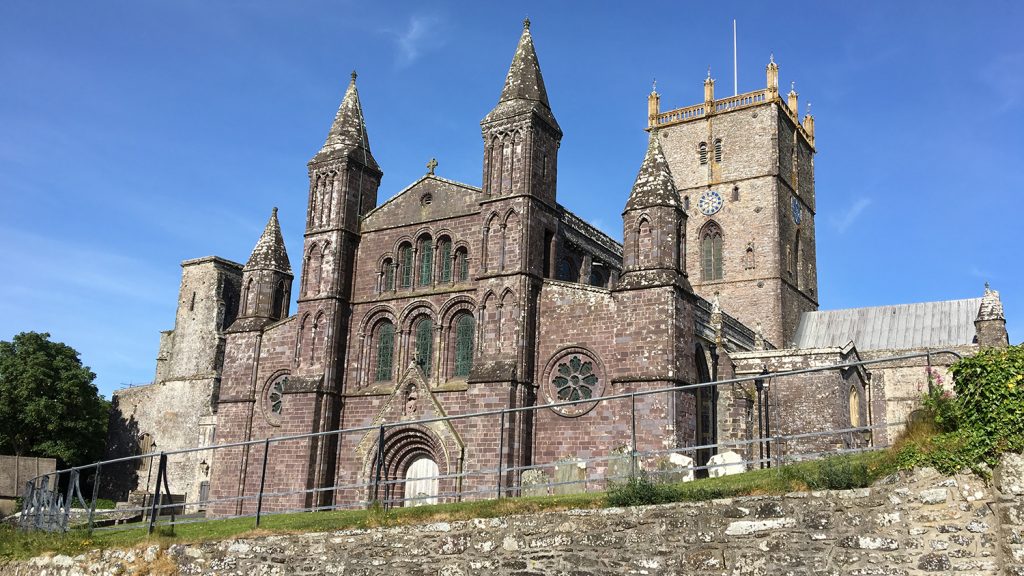This is St Dewi’s or David’s day, the 6th-century Welsh evangelist and very strict abbot. The city of St David’s, and its cathedral (pictured), are named after him. If you’re a Welsh vegetarian poet, St Dewi is the saint for you, as he’s the patron of all three. His day is traditionally celebrated in Wales by the wearing of leeks, which has been done since at least the time of Shakespeare, though no one has the faintest idea why.
Today in 1562, the Catholic Duke of Guise massacred a congregation of French Huguenots (Calvinists) worshipping in a barn at Vassy in north-eastern France. The massacre, caused when the Duke set fire to the barn, threw France into a series of savage religious civil wars (Catholic v Protestant), which lasted the best part of a century.
The English poet George Herbert died today in 1633, aged 39. Failing to find advancement at the royal court, he spent the last seven years of his life as a clergyman, but a lifelong religious conviction is seen in the fact that, as he promised his mother, he only ever wrote on religious themes.
Lord, who created’st man in wealth and store,
Though foolishly he lost the same,
Decaying more and more,
Till he became
Most poore:
With thee
O let me rise
As larks, harmoniously,
And sing this day thy victories:
Then shall the fall further the flight in me.
George Herbert, ‘Easter Wings’
George Wishart, the earliest leader of Scottish Protestantism, was burned at the stake today in 1546, in St Andrew’s, Scotland. Cardinal Beaton, who had him killed, was in turn assassinated by Wishart’s followers two months later. Wishart’s leadership was taken over by a convert of his, John Knox.
Image: Simon Jenkins
